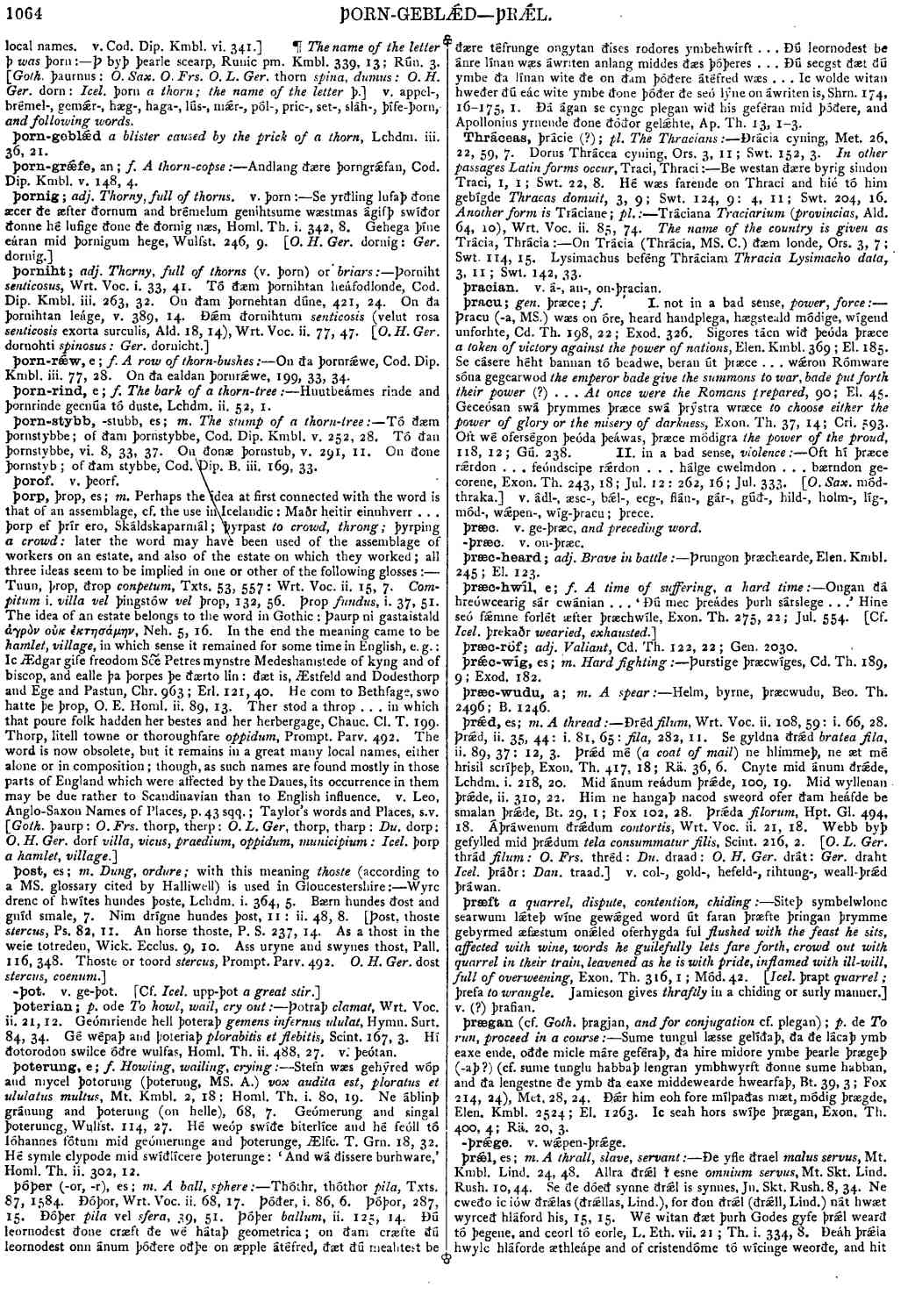þorp
- noun [ masculine ]
-
Tuun, þrop, ðrop conpetum, Txts. 53, 557: Wrt. Voc. ii. 15, 7. Compitum i. villa vel þingstów
vel
þrop,- 132, 56.
-
Þrop
fundus,
i.- 37, 51.
-
The idea of an estate belongs to the word in Gothic: Þaurp ni gastaistald
άγρόν oύκ έκτησάμην,
- Neh. 5, 16.
-
In the end the meaning came to be
hamlet, village,
in which sense it remained for some time in English, e.g.:Ic Ædgar gife freodom Sce Petres mynstre Medeshamstede of kyng and of biscop, and ealle þa þorpes þe ðærto lin: ðæt is, Æstfeld and Dodesthorp and Ege and Pastun,
- Chr. 963; Erl. 121, 40.
-
He com to Bethfage, swo hatte þe prop,
- O. E. Homl. ii. 89, 13.
-
Ther stod a throp ... in which that poure folk hadden her bestes and her herbergage,
- Chauc. Cl. T. 199.
-
Thorp, litell towne or thoroughfare
oppidum,
- Prompt. Parv. 492.
- The word is now obsolete, but it remains in a great many local names, either alone or in composition; though, as such names are found mostly in those parts of England which were affected by the Danes, its occurrence in them may be due rather to Scandinavian than to English influence. v. Leo, Anglo-Saxon Names of Places, p. 43 sqq.; Taylor's words and Places, s.v.
Bosworth, Joseph. “þorp.” In An Anglo-Saxon Dictionary Online, edited by Thomas Northcote Toller, Christ Sean, and Ondřej Tichy. Prague: Faculty of Arts, Charles University, 2014. https://bosworthtoller.com/31961.
Checked: 0